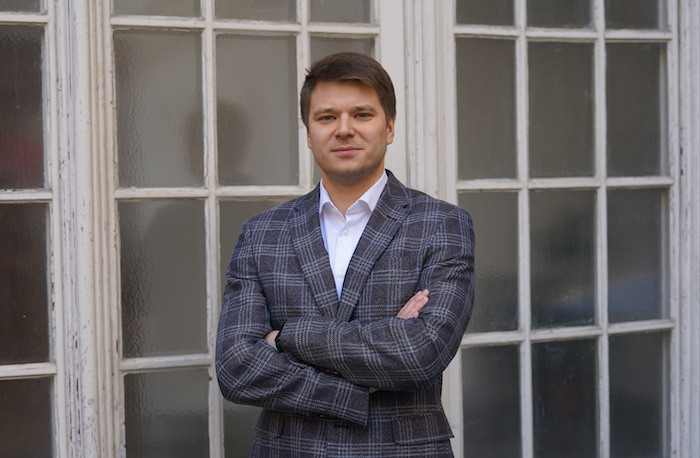The following post was contributed by Jeff Manley, Chief Operating Officer of Armadillo Litigation Funding.
Mass tort litigation is a high-stakes world, one where the pursuit of justice is inextricably linked with financial resources and risk management. In this complex ecosystem, two financial pillars stand out: bank lending and alternative litigation finance. For attorneys and their financial partners in mass torts, choosing the right financial strategy can mean the difference between success and stagnation.
The Evolving Financial Landscape for Mass Tort Attorneys
Gone are the days when a powerful legal argument alone could secure the means to wage a war against industrial giants. Today, financial acumen is as critical to a law firm’s success as legal prowess. For mass tort attorneys, funding large-scale litigations is akin to orchestrating a multifaceted campaign with the potential for astronomical payouts, but also the very real costs that come with such undertakings.
Under the lens of the courtroom, the financing of mass tort cases presents a unique set of challenges. These cases often require substantial upfront capital and can extend over years, if not decades. In such an environment, agility, sustainability, and risk management emerge as strategic imperatives.
Navigating these waters demands a deep understanding of two pivotal financing models: traditional bank lending and the more contemporary paradigm of third-party litigation finance.
The Need for Specialized Financial Solutions in Mass Tort Litigation
The financial demands of mass tort litigation are unique. They necessitate solutions that are as flexible as they are formidable, capable of weathering the uncertainty of litigation outcomes. Portfolio risk management, a concept well-established in the investment world, has found its parallel in the legal arena, where it plays a pivotal role in driving growth and longevity for law firms.
The overarching goal for mass tort practices is to structure their financial arrangements in such a way that enables not just the funding of current cases but the foresight to invest in future opportunities. In this context, the question of bank lending versus alternative asset class litigation finance is more than transactional—it’s transformational.
Understanding Bank Lending
Banks have long been the bedrock of corporate financing, offering stability and a familiar process. While bank lending presents several advantages, such as the potential for lower interest rates in favorable economic environments, it also comes with significant caveats. The traditional model often involves stringent loan structures, personal guarantees, and an inflexibility that can constrain the scalability of funding when litigation timelines shift or case resolutions become protracted.
For attorneys seeking immediate capital, interest-only lines of credit can be appealing, providing a temporary reprieve on principal payments. However, the long-term financial impact and personal liability underpinning these loans cannot be overlooked.
Exploring Third-Party Litigation Finance
On the flip side, third-party litigation finance has emerged as a beacon of adaptability within the legal financing landscape. By eschewing traditional collateral requirements and personal guarantees, this model reduces the personal financial risk for attorneys. More significantly, it does so while tailoring financing terms to individual cases and firm needs, thus improving the alignment between funding structures and litigation timelines.
Litigation financiers also bring a wealth of experience and industry-specific knowledge to the table. They are partners in the truest sense, offering strategic foresight, risk management tools, and a shared goal in the litigation’s success.
Interest Rates and Financial Terms
The choice between bank lending and third-party litigation finance often hinges on the amount of attainable capital, interest rates, and the terms, conditions, and covenants of the loans. These differences can significantly influence the overall cost of financing and the strategic financial planning for mass tort litigation.
Bank Lending: Traditional bank loans typically offer lower initial interest rates, which can be attractive for short-term financing needs. However, these rates are almost always variable and linked to broader economic indicators, such as the prime rate. Banks are very conservative in every aspect of underwriting and the commitments they offer.
Third-Party Litigation Finance: In contrast, third-party litigation lenders often require a multiple payback, such as 2x or 3x the original amount borrowed. Some third-party lenders also offer floating rate loans tied to SOFR, but the interest costs are meaningfully higher than those of banks. The trade-off is greater access to capital. Third-party lenders, deeply entrenched in industry nuances, are generally willing to lend substantially larger amounts of capital. For attorneys managing long-duration cases, this variability introduces a layer of financial uncertainty. If a loan has a floating rate and the duration of the underlying torts is materially extended, the actual borrowing cost can skyrocket, negatively impacting the overall returns of a final settlement. This is an incredibly important factor to understand both at the outset of a transaction and during the initial stages of capital deployment.
Similarly, the maturity, terms, and conditions can differ drastically between bank-sourced loans and those from third-party lenders, with no standard list of boilerplate terms for comparison—making a knowledgeable financial partner key to facilitating the best fit for the law firm. Two standard features of a bank credit facility are that the entire portfolio of all law firm assets is usually required to secure the loan, regardless of size, and an unbreakable personal guarantee further secures the entire credit facility. Both of these points are potentially negotiable with a third-party lender. Bank loans are almost always one-year facilities with the bank having an explicit right to reassess their interest in maintaining a credit facility with the law firm every 12 months. In contrast, third-party lenders typically enter into a credit facility with a commitment for 4-5 years, with terms becoming bespoke beyond these basics.
Loan Structures Under Scrutiny
The rigidity of bank loan structures, particularly notice provisions and speed of access, contrasts with the fluidity of third-party financiers’ offerings. The ability to negotiate terms based on case outcomes, as afforded by the alternative financing model, represents a paradigm shift in financial planning that has redefined the playbook for mass tort investors.
Risk at Its Core
The linchpin of this comparison is risk management. Banks often require a traditional, property-based collateral, which serves as a blunt instrument for risk reduction in the context of litigation. Third-party financiers, conversely, indulge in sophisticated evaluations and often adopt models of shared risk, where their fortunes are inversely tied to those of the litigants.
Support Beyond Capital
A crucial divergence between bank loans and alternative finance is the depth of support provided. The former confines its assistance to financial matters, while the latter, through its specialized knowledge, contributes significantly to strategic case management, risk assessment, and valuation, essentially elevating itself to the level of a silent partner in the legal endeavor. Furthermore, litigation funders (unlike banks), are often prepared to extend multiple installments of capital, reflecting a level of risk tolerance and industry insight that banks typically do not offer.
Case Studies and Success Stories
The case for alternative litigation finance is perhaps best illustrated through the experiences of attorneys who have successfully navigated the inextricable link between finance and litigation. The Litigation Finance Survey Report highlights the resounding recommendation from attorneys who have used third-party financing, with nearly all expressing a willingness to repeat the process and recommend it to peers.
This empirical evidence underscores the viability and efficacy of alternative financing models, showcasing how they can bolster the financial position of a firm and, consequently, its ability to take on new cases and grow its portfolio.
The Role of Litigation Finance Partners
When considering third-party litigation finance, the choice of partner is just as important as the decision to explore this path. Seasoned financiers offer more than just capital; they become an extension of the firm’s strategic muscle, sharing in risks and rewards to galvanize a litigation (and practice) forward.
Cultivating these partnerships is an investment in expertise and a recognition of the unique challenges presented by mass tort litigation. It is an integral part of modernizing the approach to case management, one that ultimately leads to a sustainable and robust financial framework.
For mass tort attorneys, the strategic use of finance can unlock the latent potential in their caseloads, transforming high-risk ventures into opportunities for growth and success. By carefully weighing the merits of traditional bank lending against the agility of third-party litigation financing, attorneys can carve out a strategic path that not only secures the necessary capital but also empowers them to manage risks and drive profitability.
One truth remains immutable: those who recognize the need for financial innovation and risk management will be the torchbearers for the future of mass tort litigators, where the scales of justice are balanced by a firm and strategic hand anchored in the principles of modern finance.




























